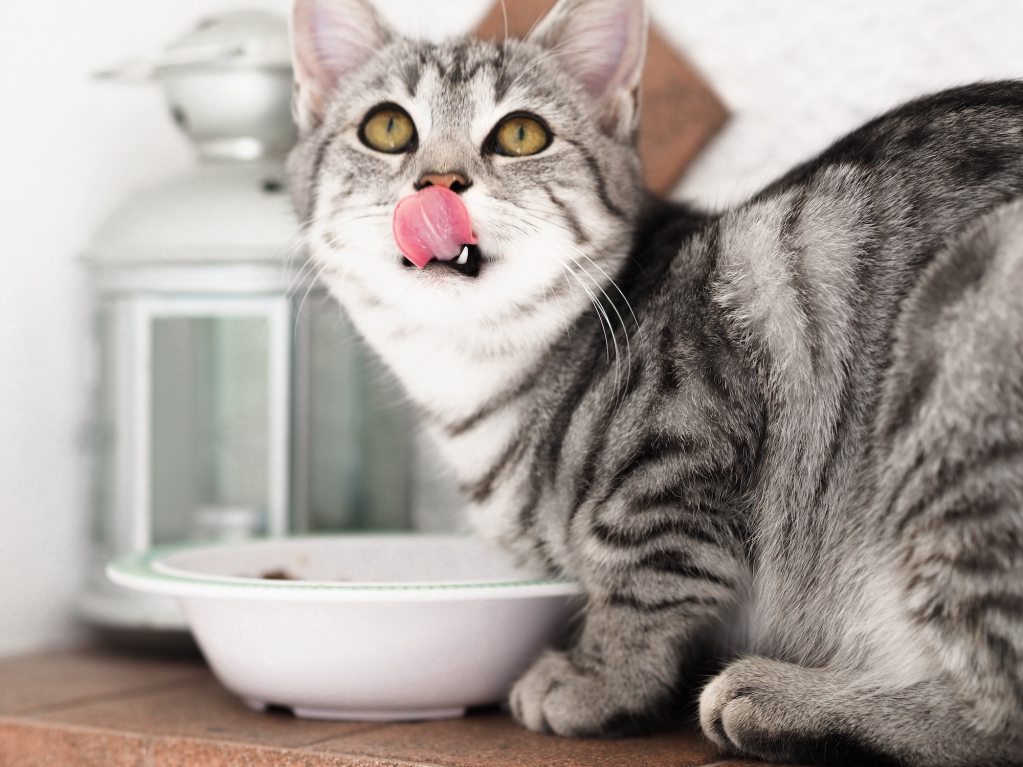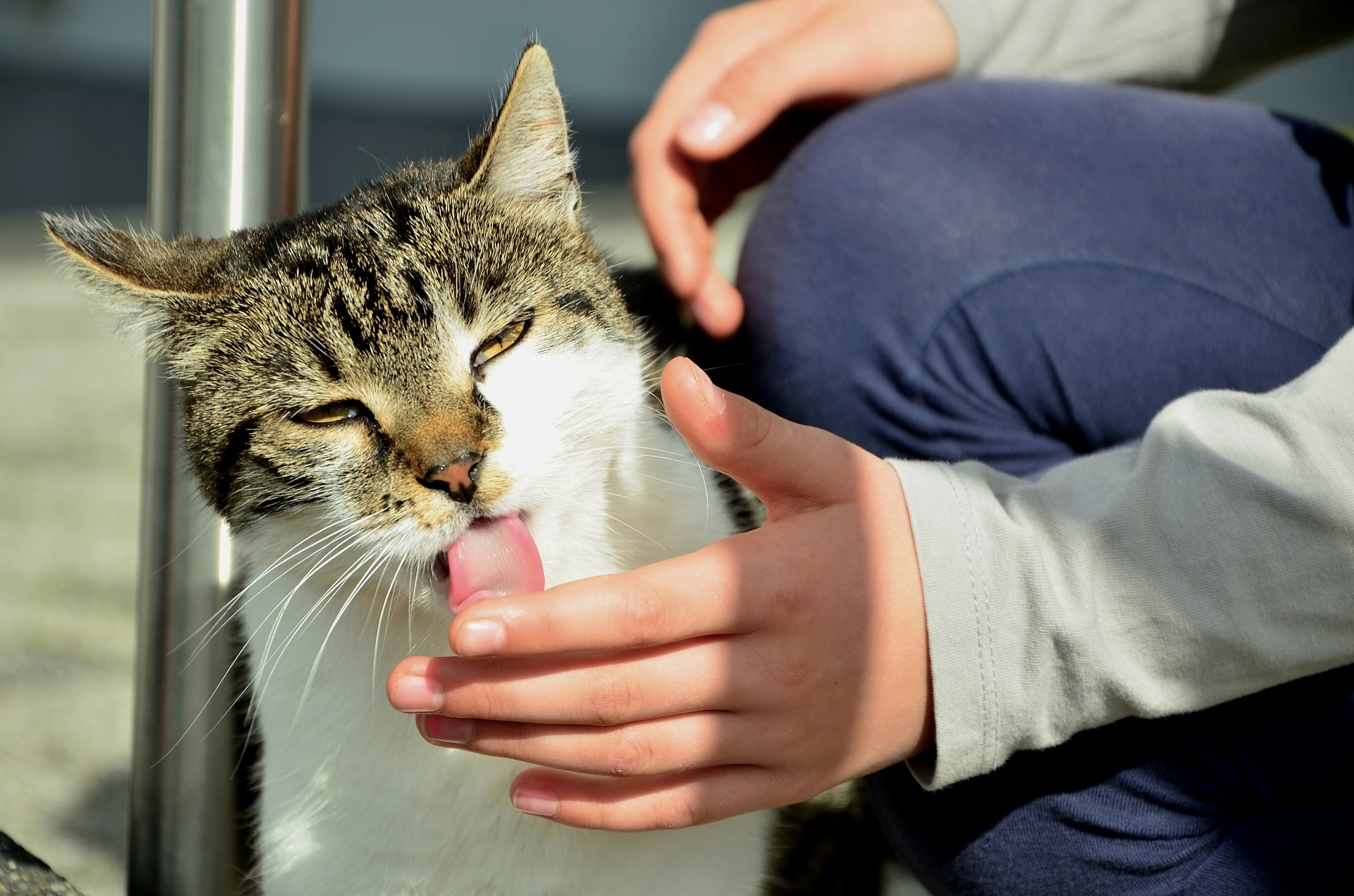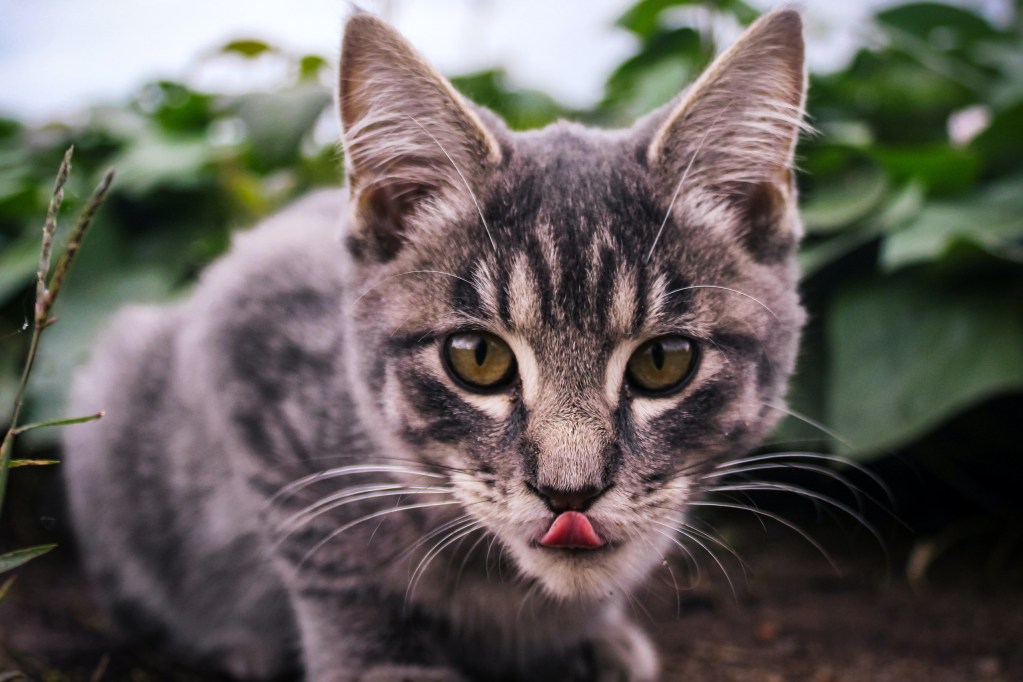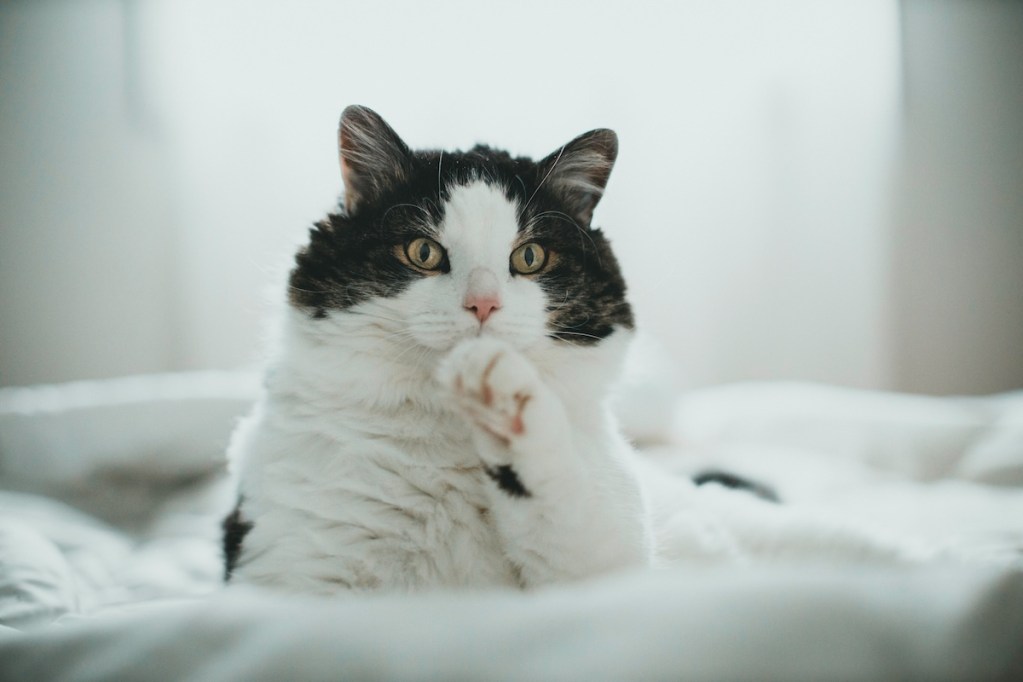
Often, cats like to be physically close to us. Your cat might curl up next to you on the sofa or even climb into your lap. But sometimes, cats take things a step further, and your kitty might lick your bare skin on occasion. Most felines will just give a lick or two and then stop, but this behavior might still have you puzzled. Is your pet grooming you? Trying to send a message?
If you’re wondering, “Why does my cat lick me?” you’ll be pleased to hear that the potential reasons behind this behavior are actually pretty sweet. Once you hear these theories, you might feel differently about your cat licking you.
Why do cats lick for no reason?

They don’t. Licking is a common cat behavior, and even though we might not yet understand it, there are probably reasons behind your cat licking you. According to BBC Science, there are three theories about just why cats lick people.
The first is one you’ve probably already thought of: Your cat may be licking you because he likes how you smell. Your little guy could be attracted to the salt from your sweat or even the scent of a sandwich you just ate. Cats have highly sensitive tastebuds, and they can pick up scents that we can’t smell at all. Licking you might be your cat’s way of investigating.
There’s also a theory that a cat’s licking a person is similar to the mutual grooming some cats exhibit when they trust each other. Cats learn to groom and lick from their mother when they’re young kittens, and as an adult, grooming might be a way to show trust in another being — namely, you. Your animal may be demonstrating that he feels secure around you.
A third possibility may be that your cat is licking you to prove that he owns you. Cats love their own scent, and licking is one way that they spread that scent. Much in the same way that they rub their heads against you to mark your legs, your cat may be licking you to mark you as his.
Keep in mind that it’s also possible you may have inadvertently taught your cat to lick you. If your mouser licked you and you reacted by laughing, looking at, and petting your cat, he learned that he can get your attention by licking you. If he repeats this behavior and you react the same way each time, then you’re reinforcing that message. In this case, licking you might be a learned behavior, and it could have become your cat’s way of getting what he wants, whether that’s attention or pats.
Should I let my cat lick me?

In many cases, there’s no harm in letting your cat lick you a little bit every now and then. After all, kitty kisses never hurt anyone, right? You’ll want to wash your hands after if he’s done, but usually, this behavior is pretty harmless. But because cats’ tongues are rough, things can get uncomfortable if your furry baby tries to lick you too much.
There are some instances where your cat’s licking might become unhealthy, like if he starts licking you excessively because he’s feeling stressed or bored. In these cases, you’ll need to distract your cat or move away from him. Often, keeping a toy beside you that you can toss to your cat should be enough to distract him.
Why does my cat grab my hand and bite me gently?

You might worry that a playful nip means something different from a lick, but it really doesn’t to your cat. Little kittens frequently bite their moms for attention and sometimes she returns the favor, gently of course. This could be a part of a grooming or bonding ritual. If your cat bites really hard, meaning leaves a mark or breaks skin, that’s a different matter, and you’ll want to investigate the cause.
Sometimes, it’s really just overstimulation, an easy fix. Rarely it means your pet needs to tell you that something’s wrong and you need to be on the lookout for other unusual behaviors when this happens suddenly.
Final thoughts on cat licking

Licking is a natural behavior for cats, and if your cat is licking you, chances are it’s a positive thing. While we don’t fully know why cats lick people, the current theories all suggest that your cat is probably pretty comfortable with you to be licking you. So, if your cat licks you on occasion, you can probably take it as a compliment.
However, like all cat behaviors, it’s possible for licking to become obsessive. If you notice your cat is licking you excessively or aggressively, then talk with your vet. They might have some insight or might refer you to a cat behaviorist to help you better understand just what’s going on.


